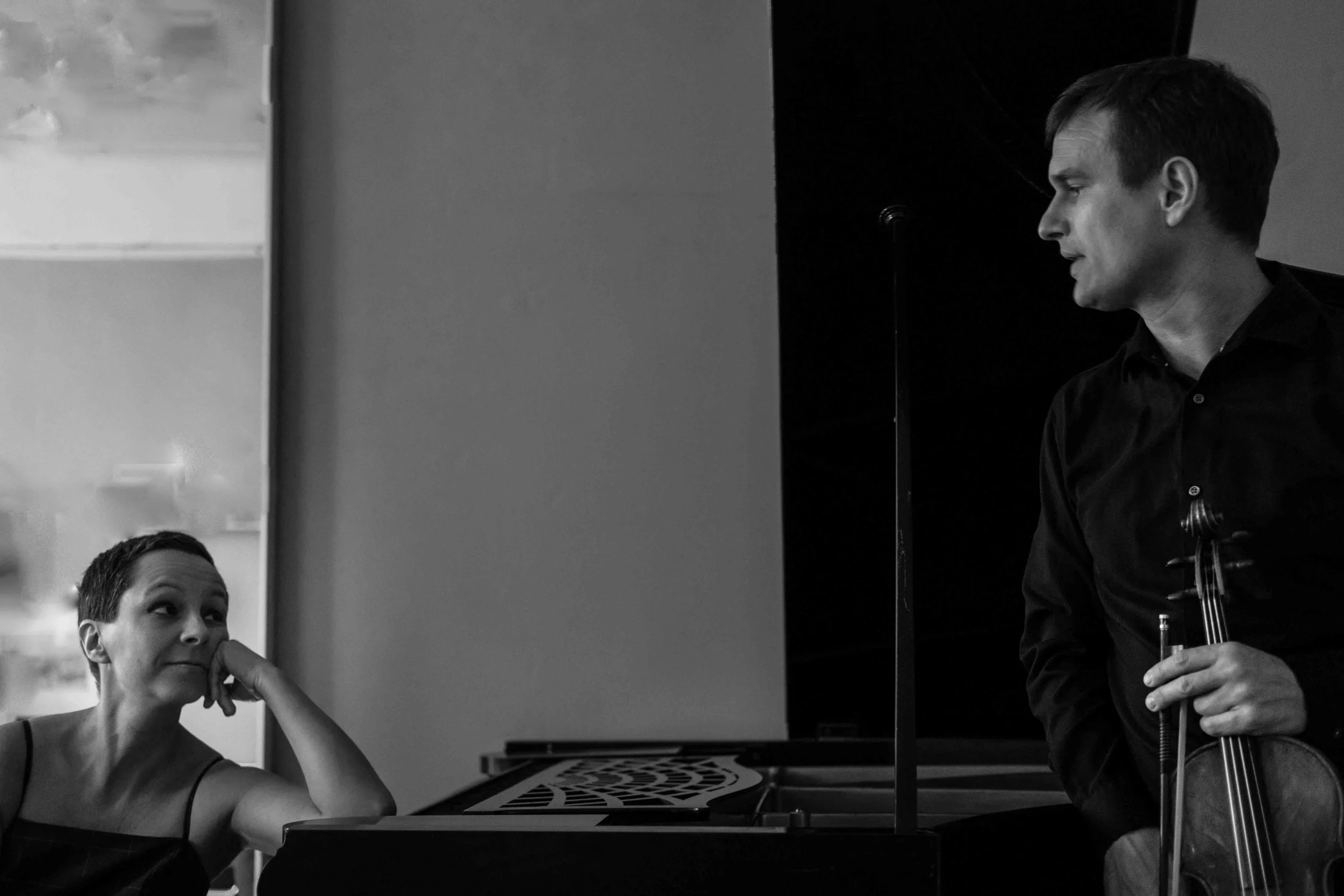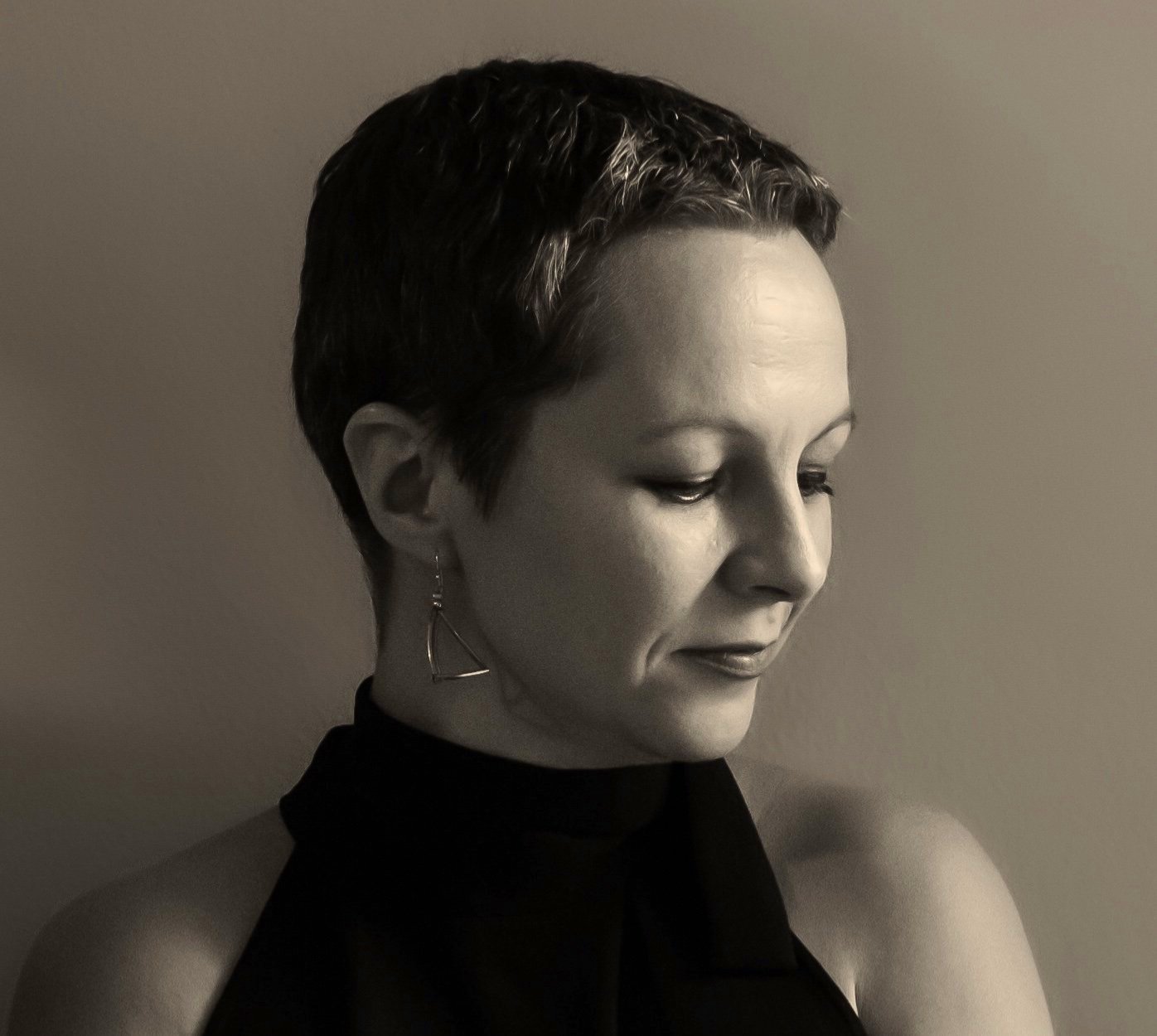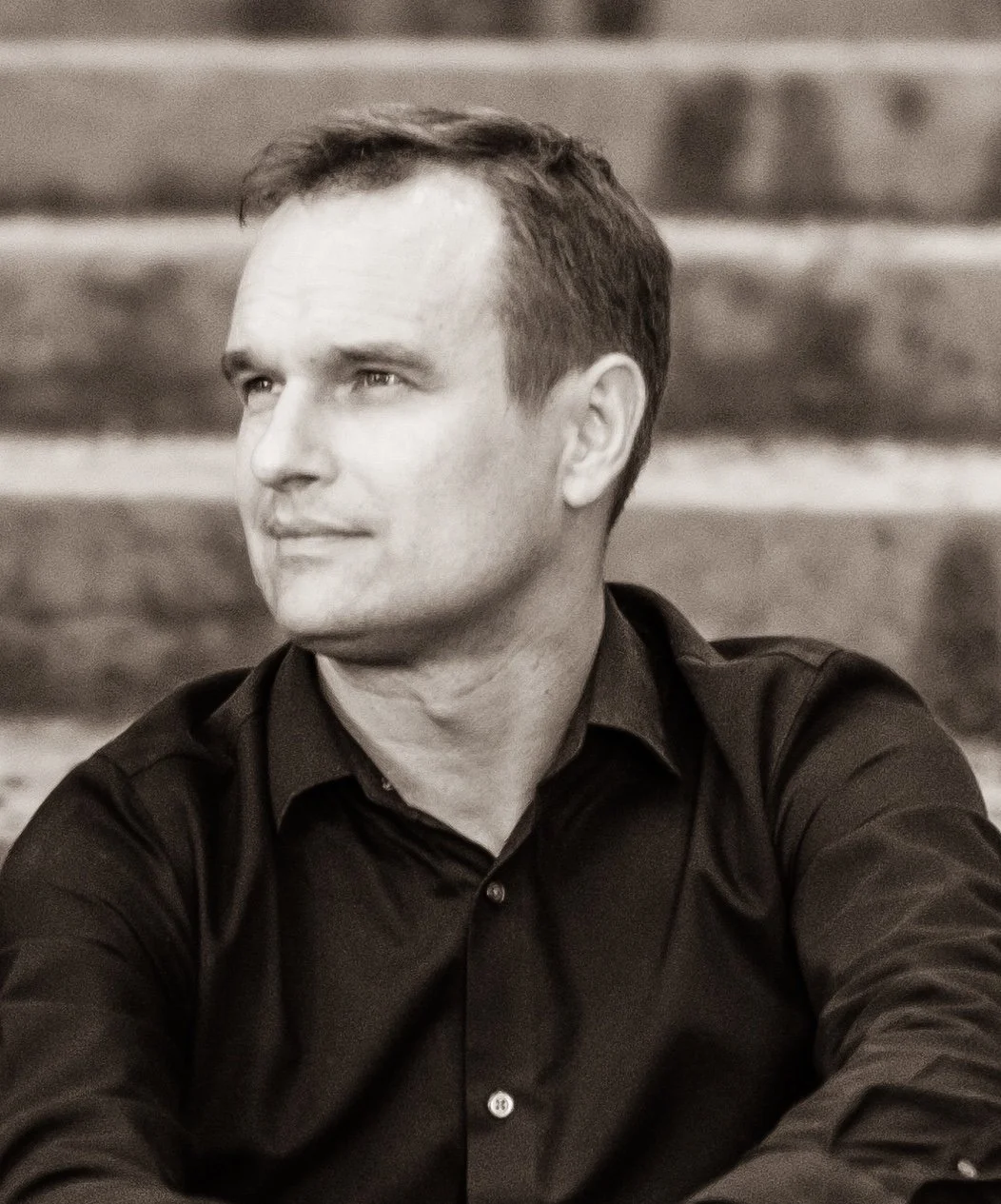Review of Duo Trouvaille concert “The Tales Of Last Century” in polish newspaper KurierPlus by Sabina Nemtusiak
The New York music lovers belong to a privileged class of their kind. In a city described as the cultural capitol of the world, inhabited and yearly visited by a stream of thousands of artists, it is not difficult to attend a fantastic concert, not to have contact with outstanding individuals of the music scene.
During the concert season, on almost any day, one can listen to remarkable performers, thus, music aficionados stand before a difficult decision – which concert will deliver the most profound emotion and top notch esthetic sensibility.
The constant presence of various social media does not make this choice any easier by engulfing us in an avalanche of notices to a must - attend musical event. Anyone, who on a spur of the moment bought a ticket to a concert or a presentation that left him or her un-impressed, will admit that the disappointment can be acute. However, how awesome, when following a suggestion, we take part in an unforgettable happening, one that will move us esthetically, inspire artistically, or, simply, allow us the pleasure of listening to beautiful music performed by most talented people.
It is just such a concert that I had the opportunity to attend several weeks ago at the Kaufman Music Center. Not far from Lincoln Center, this hall, comprised of several auditoriums, offers a fine venue for local as well as visiting artists during the musical season, and offers a rich variety of solo performers, as well as chamber and orchestral presentations.
Last Sunday in June, one of the rooms was graced by a very interesting performance of a violin and piano duet.
Although Duo Trouvaille is a fairly recent collaboration, both artists are fine and matured musicians, who have been active on the New York music scene for years. Russian born pianist, Yulia Dusman, and violinist, Krzysztof Kuźnik from Warsaw, Poland, both began their musical education in their homelands, but decided to continue their studies in New York. After completing them, both began an intensive performing as well as pedagogical schedule. You can find detailed biographies on the Internet site of their duet: duotrouvaille.net. They accidentally met almost a year ago, but that meeting yielded a superior musical collaboration.
The evening’s concert began with Alfred Shnittke’s “Suite in the Old Style”, a composition written originally for violin during the mature period of his creativity, and showing a distinct baroque influence in both form and elements. It possesses a simple body of work, which does not allow for an overly stylized presentation, but at the same time, it does not lack finesse. Therefore it demanded certain elegance and controlled emotion, which was well delivered with an additional dose of humor and charm, and made for a fine start of the concert.
Three of George Gershwin’s Preludes were next on the program. Originally composed for piano solo, they were presented in an arrangement by Jascha Heifetz. These compositions were considered quite innovative in their time. Abundantly drawing inspiration from the New York jazz clubs of the prohibition, they shocked with their bold rhythmic shapes, parades of chords and octaves, and melodies that were snatched directly from scales of popular jazz and blues compositions. Even today, the music of the Preludes maintains the varnish of freshness, especially when played with zest and aggressiveness of the Duo Trouvaille musicians. Complicated rhythms and cascades of octaves became a canvass for humorous musical pictures, easily compared to fireworks.
Bela Bartok’s “Rumanian Folk Dances” were the last entry of the 1st part of the program, a series of six miniature compositions based on Transylvania’s folk music. Originally written for a piano solo performance, later re-orchestrated by the composer himself, the “Dances” for violin and piano, are unusually often performed at concerts. These pieces are exceedingly popular, no doubt due to an excellent arrangement by Zoltan Szekely. It explores all the technical possibilities of a violinist by implementing two-tone progressions, artificial flageolets, and a virtuoso worthy command of the bow. Duo Trouvaille was very effective in picturing the folk color of the pieces. It presented a scale of different moods- from focused and lyrical to comically rustic, finishing the last dance in a very lively manner.
The second half of the concert was wholly comprised by a monumental piece of work – Sergei Prokofiev’s violin and piano Sonata, No. 2, opus 94bis. Original version was composed for flute and piano. but the composer himself re-arranged it at the request of his friend, a famous violin virtuoso, David Oistrakh. The work is evolved on a classical four-part sonata, in which quick movements based on the composer’s technical ability to transform contrasting musical themes surround the different moods and tempos of central links. The layers of sounds are permeated by showiness and ornamentation, elements that are synonymous with compositions created especially for ostentatious instruments such as flute or violin. There is a perfect balance of lyricism and bravura, as well as elegance and humor, and that is exactly why the sonata is so popular. It would be difficult to find a better culmination of a concert, whose purpose was to present a tribute to musical humor, than this brilliant sonata, especially in the worthy interpretation of the Duo Trouvaille.
From the first measures of Allegro Moderato, it was easy to surmise that we were witness to an excellent collaboration of two musical individuals. The finesse and cheerfulness of the first part was replaced by an exuberant scherzo during which the artists engaged in a contrary exchange of musical motifs, never once loosing control of the breakneck speed. The third part brought a momentary respite – a moody and pastel colored Andante, during which the musicians had an opportunity to show subtler emotions, initiating a refined dialogue in the soft sounds of the piano dynamic. The Finale, Allegro con Brio, showed a true apotheosis of vitality and musical humor. A stacking of technical difficulties and a specific touch of mannerism in the composer’s musical language presented the musicians with a great challenge, rarely met by even seasoned performers. Duo Trouvaille conquered the work with vitality and greatness of sound, never neglecting the humorous tone nor subjugating the interpretation to undue pathos. The final coda, full of cascading ornamentallity and fanfares, brought to mind a spectacular firework show, providing a worthy conclusion to a concert abounding in humor and joy.
The astounding collaboration of two strong individuals of the Duo Trouvaille duet yielded a superior integrity of sound. We were able to admire not only the uncompromising virtuosity and discipline of this musical dialogue, accompanied by a sense of style and artistic unity, but also the magnetic personality of the performers, which kept us on the edge of our seats.
This was only the second concert of the duet, but it was well thought out and quite intelligent, bringing a specific vision, which is often missing in today’s performers. The two hours spent in Ann Goodman Hall provided the audience with inspiring emotions. Undoubtedly, the New York musical scene is enriched by this new and fascinating violin and piano duet, the Duo Trouvaille. We should all look forward to its progress with great expectations. Personally, while awaiting future concerts, I wish the musicians great success.
https://www.kurierplus.com/2018/07/6294/nowy-duet-na-nowojorskiej-scenie/



